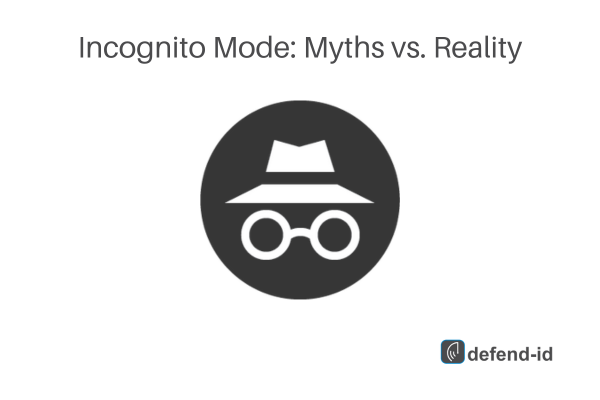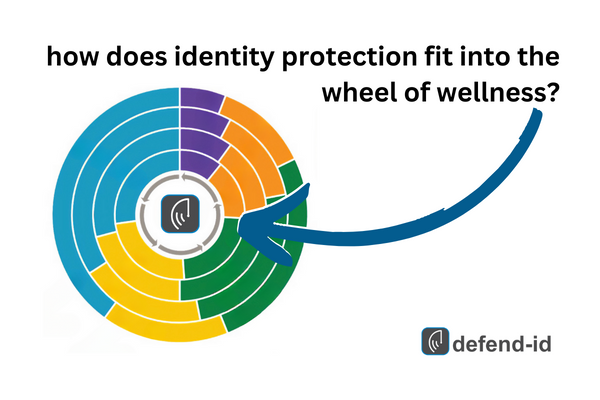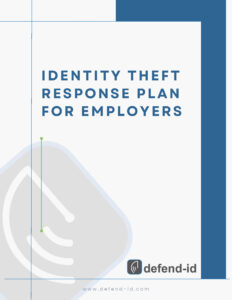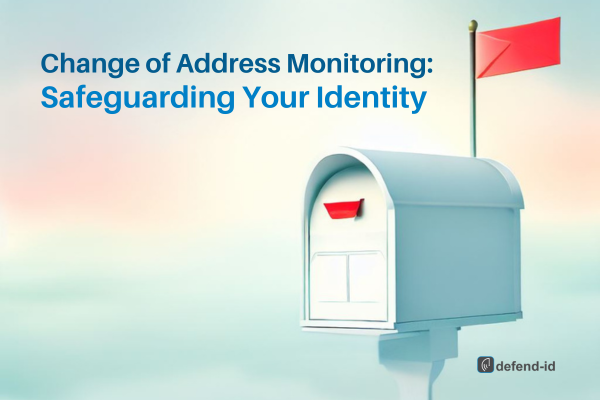
by Brian Thompson | Apr 18, 2024 | Employee Benefits, Identity Theft
Incognito mode, or private browsing, is a feature found in most modern web browsers like Google Chrome, Firefox, and Safari. It promises a level of privacy and secrecy by not saving your browsing history, cookies, site data, or information entered in forms. Understanding the nuances of incognito mode misconceptions is crucial for using this feature effectively.
What Incognito Mode Actually Does
- No Local Trace: When you use incognito mode, your browser does not save your browsing history or cookies after you close the window. This means anyone else using the same device won’t be able to see what you were doing.
- Session Isolation: Each incognito session is isolated from the other. If you sign into a website in incognito mode, your login state won’t carry over to the normal browsing windows. This is particularly useful for accessing multiple accounts simultaneously.
- Some Forms of Shield Against Tracking: While not foolproof, using incognito mode can reduce tracking from some cookies, as they are deleted once you close the window.
Popular Myths vs. Reality
- Myth: Incognito mode makes you invisible online.
Reality: Incognito mode does not hide your IP address or encrypt your traffic. Your internet service provider (ISP), websites you visit, and network administrators can still see your activity.
- Myth: It is a tool for anonymous browsing.
Reality: Incognito mode does not offer anonymity. For true anonymity, one would need tools like VPNs or the Tor browser.
- Myth: You are safe from malware and viruses in incognito mode.
Reality: Incognito mode does not protect you from viruses or malware. It only prevents your browsing history and cookies from being saved.
The Privacy You Get (And Don’t Get) With Incognito Mode
While incognito mode offers a basic level of privacy by not saving your history or cookies, it does not protect you from all types of surveillance. Employers, ISPs, and websites can still track your visits and interactions through various means like your IP address.
Better Alternatives for Serious Online Privacy
For those who are serious about maintaining privacy online, consider the following:
- VPNs (Virtual Private Networks): A VPN encrypts your internet connection and hides your IP address, providing a much higher level of privacy than incognito mode.
- Tor Browser: For maximum anonymity, the Tor browser routes your traffic through multiple nodes, making it extremely difficult to track.
- Secure Browsers: Browsers like Brave are built with privacy in mind, offering various features to block trackers and ads by default.
Conclusion: Is Incognito Mode Enough?
While incognito mode is helpful for keeping your local browsing private, it’s not a one-stop solution for all privacy needs. Knowing its limitations helps set realistic expectations about what privacy you can actually achieve while online.
Remember, no tool is perfect, but understanding the tools you use can make a significant difference in your digital life. So, next time you go incognito, remember that it’s just one piece of the privacy puzzle.
FAQs about Incognito Mode:
- Does incognito mode save any data?
No, it does not save your browsing history, cookies, site data, or information entered in forms on your device after you close the session.
- Can my employer see what I browse in incognito mode if I’m on a company network?
Yes, your employer can still track your browsing activity if you are connected to the company’s network.
- Is incognito mode the same in all browsers?
While the core functionality is the same, some browsers might offer slight variations in how they handle cookies and data during incognito sessions.
If you’re ever in doubt about what incognito mode can do for you, just remember it’s great for keeping things off your local machine but not much else when it comes to the wider web. For anything beyond that, you’ll need to beef up your privacy tools arsenal.
Article related to incognito mode misconceptions:

by Brian Thompson | Feb 21, 2024 | Employee Benefits, healthcare, Identity Theft
Guarding Employee Wellness: Why Identity Theft Protection is a Great Option for Business Owners and HR Leaders
In today’s rapidly evolving work landscape, the separation between professional and personal life is becoming increasingly blurred, especially with the increase in remote working. In this newer working environment, employees crave benefits that cater not only to their physical health but also to their financial and emotional wellness. The LIMRA-EY 2023 Workforce Benefits Study brings to light this shift by introducing the Wheel of Wellness, encompassing five key dimensions of wellness: Physical, Mental, Financial, Societal, and Professional 1.
A novel yet pivotal benefit that aligns with multiple facets of the Wheel of Wellness is Identity Theft Protection. Here’s how it dovetails with the five key dimensions:

- Financial Wellness:
Identity theft is no minor issue; it’s a financial slap in the face. The average loss per person is a staggering $3,500. In the United States, total identity theft losses amount to $10.2 billion 2. Offering identity theft protection is a proactive step towards safeguarding an employee’s financial wellness, and ensuring economic resilience, which is a core part of the financial dimension of wellness.
- Mental Wellness:
The ripple effects of identity theft extend beyond financial loss to mental turmoil. The peace of mind from knowing there’s a safety net can be invaluable in promoting mental wellness among employees 3 4. According to the ITRC study, 75% of respondents showed severe distress stemming from the misuse of their information, leading many to seek professional help to navigate their identity theft ordeal—whether it entailed consulting a doctor for physical symptoms or engaging in mental health counseling.
- Professional Wellness:
The time and focus consumed in resolving identity theft issues can impede professional performance. By offering identity theft protection, employers show a proactive stance in supporting their employees’ career development and performance, aligning with the Professional dimension of wellness.
- Societal and Physical Wellness:
While these dimensions may not seem to have a direct link to identity theft protection, a comprehensive approach to employee wellness fosters a conducive environment for societal engagements and physical wellness.
The Stark Reality
A substantial number of Americans are living on the financial edge. Recent surveys reveal that a third of Americans have $100 or less in their savings account going into 2023 6, and many cannot cover a $1,000 emergency 7. This precarious financial situation underscores the necessity of identity theft protection as a part of employee benefits.
Incorporating Identity Theft Protection acts as a barrier against financial distress. Additionally, it contributes to the mental and professional well-being of employees. This benefit’s ripple effect resonates through the Wheel of Wellness. It creates a holistic protective shield around employees. For business owners or HR leaders, including identity theft protection in your benefits is a forward-thinking step. It nurtures a well-rounded, satisfied, and productive workforce. In a fiercely competitive talent market, offering this comprehensive benefit can bolster your employer brand. It makes you a preferred choice among top talents.
As the terrain of work continues to morph, adapting your benefits package to include identity theft protection is not merely about staying current; it’s about fostering a culture of comprehensive wellness and showing a genuine interest in the multifaceted well-being of your workforce.
Ready to arm your employees against identity theft and enhance their overall wellness? Click here to request a comprehensive Identity Theft Protection Employer Response Plan. Your employees will thank you for it!
Related:

by Brian Thompson | Feb 7, 2024 | Employee Benefits, Identity Theft
Personal information is as valuable as currency, so protecting oneself from identity theft is crucial. With cybercriminals becoming increasingly sophisticated, simply hoping for the best is like leaving your front door wide open. But with so many identity theft protection services out there, how do you pick the right lock and camera for your digital doorway? This guide isn’t just about How to Choose the Best Identity Theft Protection Service for You.
Imagine walking through Times Square, your wallet visibly bulging with cash. In the digital world, that’s exactly what you’re doing without proper identity theft protection. This guide is about sifting through the vast and sometimes murky waters of online security Marketing. There are some apples and orange scenarios but it’s usually a variation of the orange you need to be aware of.
The Essentials of Identity Theft Protection
At its core, identity theft protection monitors personal information in credit reports, public records, and online spaces to alert you of potential fraud. Services range from basic credit monitoring to robust plans including fraud resolution support and up to $1 million in identity theft insurance. Yet, as cyber threats evolve, so should our defenses. Comprehensive digital security tools like antivirus software, VPNs, and password managers are becoming indispensable in the fight against identity theft.
Evaluating Your Needs
Before diving into the sea of services, take a step back and assess your digital footprint. Are you a casual internet user or a digital nomad living online? Do you frequently shop or bank online? Understanding your habits and exposure can help pinpoint what protections are most pertinent. Ask yourself what scares you more: the thought of someone opening a credit card in your name or the realization that your personal photos and conversations could be leaked? This introspection is your compass in choosing the right service.
Comparing Services: Beyond the Brand
In the world of identity theft protection, differentiation is often muddled by similar marketing promises, making everything appear equally effective. However, this uniformity is a facade. Many insurance carriers, for example, tout “identity theft protection” as part of their offerings, but a closer look may reveal a watered-down version of protection. These versions often lack comprehensive monitoring, digital security tools, and robust fraud resolution services, focusing instead on post-theft insurance without preventative measures. It’s a bit like offering an umbrella that can only be opened once the rain has stopped – helpful, but not quite what you need when the storm hits.
This highlights the importance of digging deeper than flashy marketing. True protection encompasses both mitigation and resolution, offering protection before the attack and a place to turn if needed. When evaluating services, ask pointed questions about the specifics of their monitoring capabilities, the extent of their insurance coverage, and how they support you in fraud resolution. Remember, when it comes to safeguarding your identity, the quality matters.
Big names might catch your eye, but the devil’s in the details. Look past the logo to what’s actually on offer. Some services excel at credit monitoring but skimp on digital security measures. It’s akin to having a state-of-the-art lock on a flimsy door. Dive deep into what each plan covers, and scrutinize the fine print for what matters most to you.
Key Features to Look For
Here’s a checklist for your quest:
- Credit and Identity Monitoring: How thorough is the monitoring? Is it just your credit score, or does it include dark web surveillance and social media?
- Fraud Resolution and Insurance: What happens if your identity is stolen? Look for services offering hands-on support in restoring your identity, along with substantial insurance coverage.
- Digital Security Tools: Comprehensive protection isn’t just about monitoring; it’s also about prevention. Services that include or offer discounts on antivirus software, VPNs, and password managers are gold.
- Customer Support: When panic strikes, responsive customer service can be your calming beacon. Ensure the service offers 24/7 support.
Making the Decision on How to Choose the Best Identity Theft Protection Service for You
Balancing cost against features can feel like a high-wire act. Remember, free plans might be tempting, but the level of protection is often proportional to the investment. AND – nothing is free. Think of it as insurance: you’re not just paying for the service but for peace of mind. Take advantage of free trials and money-back guarantees to test the waters before committing.
Your Safety, Your Choice
In the end, choosing the right identity theft protection service boils down to understanding your digital lifestyle and matching it with a service that covers your bases without breaking the bank. It’s about finding that perfect balance between peace of mind and practicality. Remember, in the digital world, your security is your responsibility, but you don’t have to go it alone.
FAQs
- Q: Can identity theft protection services prevent all types of identity theft?
A: While no service can offer a 100% guarantee, a comprehensive protection plan significantly reduces your risk and provides tools and support to minimize the impact should identity theft occur.
- Q: How often should I review my identity theft protection needs?
A: As your digital life evolves, so should your protection. Review your coverage annually or after major life changes, like moving, marriage, or a change in online habits.
- Q: Are digital security tools like antivirus and VPNs really necessary?
A: Absolutely. In today’s interconnected world, these tools form the first line of defense against cybercriminals, protecting your personal information from being compromised in the first place.
Additional Thoughts
In a world brimming with digital threats, choosing the right identity theft protection service is more than a convenience—it’s a necessity. Arm yourself with knowledge, and make the choice that best fits your digital footprint. After all, in the fight against identity theft, being proactive isn’t just smart; it’s essential.
Protecting Your Employees, Too:
 Employers, it’s your responsibility to protect not just your business but also your employees from identity theft. That’s why we’ve created the Employer Identity Theft Plan. This comprehensive guide provides valuable strategies and steps to take if an employee’s identity is stolen.
Employers, it’s your responsibility to protect not just your business but also your employees from identity theft. That’s why we’ve created the Employer Identity Theft Plan. This comprehensive guide provides valuable strategies and steps to take if an employee’s identity is stolen.
Download the Plan Now to ensure you’re prepared to assist your employees in protecting their identities. Equip yourself with the knowledge and resources to handle such incidents effectively and maintain a secure workplace environment.
Articles related to How to Choose the Best Identity Theft Protection Service for You:

by Brian Thompson | Sep 20, 2023 | Employee Benefits, Identity Theft, Mortgage
Did you know that something as simple as a change of address can protect or expose you to identity theft? Let’s dive in and discover why change of address monitoring helps in safeguarding your identity!
What is “Change of Address” Monitoring?
Imagine you’re moving to a new house. You’d want all your letters and packages to come to your new address, right? That’s when you inform the post office to redirect all your mail. But what if someone sneaky does this without you knowing? That’s where change of address monitoring steps in. It watches for any changes to your address and alerts you if something looks fishy.
Why is Address Monitoring Important?
- Stay In The Know: With address monitoring, you’ll always know where your mail is heading. No more lost birthday cards or missing bills!
- Spot The Bad Guys: If a sneaky person tries to change your address without you knowing, this tool will quickly let you know.
- Peace of Mind: You can sleep better knowing that you have an extra layer of protection for your personal info.
How Can Criminals Misuse Address Changes?
You might wonder, “Why would anyone want to change my address?” Here’s the scoop:
- Stealing Your Stuff: By rerouting your mail, criminals can snatch credit card offers, checks, or new credit cards before you even know they’re missing.
- Gathering Information: Identity thieves love to collect personal info. With your mail, they can learn a lot about you and potentially misuse it.
- Hiding Their Tracks: If they change your address, you might not get important bills or alerts, giving them more time to cause mischief.
Make Address Monitoring Your Secret Weapon!
You wouldn’t leave your front door unlocked, so why leave your mailbox unprotected? Change of address monitoring is like a security guard for your mail. By being in the know, you can stop identity thieves in their tracks.
*Interesting Fact: According to experts, millions of people have their identities stolen every year, but those with monitoring tools are more likely to catch and stop the bad guys!
Your address is more than just where you live. It’s a gateway to your personal information. By keeping an eye on any changes, you’re not only protecting your mail but also your identity. So, be smart, be safe, and consider adding address monitoring to your safety toolkit!
Remember: Safety first, because your identity is priceless!
Related articles to Change of Address Monitoring: Safeguarding Your Identity:

by Brian Thompson | Sep 6, 2023 | Employee Benefits, Identity Theft, Mortgage
The mortgage lending industry is a crucial pillar of the American dream. It enables people to buy homes, build credit, and secure a future for their families. But there’s a hidden threat jeopardizing this dream for everyone involved: identity theft and fraud. As a responsible mortgage lender, it’s not just good ethics but also good business sense to protect your employees from identity theft. Why? Because doing so further shields your company, your reputation, and most importantly, your borrowers. In this article, we’ll explore the many compelling reasons why mortgage lenders need employee ID Theft Protection to create a Safer, Trustworthy Business Environment.
The Domino Effect: Employees to Borrowers
Mortgage lenders handle a mountain of sensitive information daily. From Social Security numbers to financial statements, your company is a treasure trove for cybercriminals. If an employee’s identity is compromised, the ripple effects can easily extend to your borrowers and tarnish your brand reputation. Identity theft can also lead to cybersecurity issues.
No One Is Immune
We often think it won’t happen to us, but statistics suggest otherwise. According to a report by the Federal Trade Commission, there were 2.4 million identity theft reports in 2022 alone. If an employee falls victim to identity theft, they might inadvertently put borrowers’ data at risk due to distractions or emotional distress.
The Cost of Negligence Is High
Failing to protect your employees and, consequently, borrowers can result in severe financial repercussions. Legal consequences/Legal fees, penalties, and loss of business can add up quickly. Your reputation can take years to rebuild, and some borrowers may never return.
Peace of Mind Equals Productivity
Knowing that they’re protected, employees are more likely to be focused and efficient. They will handle borrowers’ information with the care it deserves, making your borrowers feel secure and satisfied. Happy borrowers lead to positive reviews, and we all know how vital those five-star ratings are in the digital age.
Easy Implementation
There are several top-notch identity theft protection services designed specifically for businesses. These platforms offer a variety of features, such as credit monitoring, alerts, and recovery services, that safeguard your employees’ identities. These services, such as defend-id, are designed to enhance employee safety where they protect sensitive data, and provide financial security.
In a world where data breaches are increasingly common, providing your employees with identity theft protection is not just an added benefit but a necessity. This proactive step will protect your company, preserve your reputation, and most importantly, offer peace of mind to your borrowers. Make the smart move today to shield your tomorrow.
With identity theft protection for employees, everyone wins—you, your staff, and your valued borrowers. Secure your business’s future by making this crucial investment now.
Articles Related to Why Mortgage Lenders Need Employee ID Theft Protection:

by Brian Thompson | Sep 1, 2023 | Employee Benefits, healthcare, Identity Theft
The Hidden Costs of Identity Theft & Employee mental health, an Urgent Call to HR Professionals
Human Resources (HR) professionals have a lot on their plates—everything from recruitment to performance evaluations. Yet, amidst all the paperwork and planning, the emotional well-being of employees often gets overshadowed. While companies are increasingly focusing on mental wellness—as highlighted in a recent [Business West article]—there’s one area that is often overlooked: the impact of identity theft on an employee’s mental health.
The Emotional Anguish of Identity Theft
Feeling Violated
Picture this: One day, you find out someone else is walking around, pretending to be you. They’re spending your money, ruining your credit, and maybe even endangering your reputation. The emotional trauma goes beyond losing a few bucks. It feels like a violation of your very identity.
Loss of Trust
Having your identity stolen can really mess with your ability to trust others. The invisible walls we put up around ourselves can easily make their way into our work environment, affecting how we interact with colleagues and supervisors. It can even result in reduced team collaboration.
Stress and Anxiety
Imagine living with a cloud of constant worry hanging over you—worry about more identity breaches, fear of financial ruin, and the exhausting rigmarole of restoring your identity. This heightened stress and anxiety are not conducive to a productive work environment.
Shame and Embarrassment
Many victims of identity theft end up blaming themselves. This internalized shame can be paralyzing and may cause them to disengage at work, further exacerbating the problem.
The Ripple Effects on the Workplace
Decline in Work Quality
When someone is emotionally and mentally distressed, their work often suffers. The creativity, focus, and determination needed to perform well can be significantly dulled, leading to missed deadlines and subpar work.
Absenteeism
Victims may need time off to resolve the legal and financial mess created by identity theft. These sudden and frequent absences can disrupt the workflow and set back team projects.
Team Dynamics
The mistrust and anxiety felt by one affected individual can have a domino effect, compromising the dynamics of an entire team and reducing overall productivity.
The Role of HR in Mitigating Emotional Strain
Offer Support
HR can play a pivotal role by providing emotional and logistical support. This can range from offering counseling services to granting flexible work hours for affected employees to resolve the issues.
Educate the Team
Proactive education is key. Inform your team about the risks and signs of identity theft and equip them with tools to protect themselves.
Encourage Open Dialogue
Fostering a work environment where employees feel comfortable sharing their concerns can go a long way. Encourage open conversations about mental health and personal challenges to lift the shroud of stigma.
Identity theft is not just a financial issue. It’s an emotional and mental ordeal that can have a significant impact on workplace performance and well-being. By recognizing and addressing the emotional ramifications, HR professionals can ensure a more secure and nurturing work environment. Ultimately, the investment in employee well-being translates into a more engaged, productive, and successful workforce.
Remember, a happy employee is a productive one, and that productivity drives organizational success. Ignoring the emotional toll of issues like identity theft is no longer an option. It’s time for HR to step in and be the change agents organizations so desperately need when it comes to Identity Theft & Employee Mental Health.
Related Articles:







